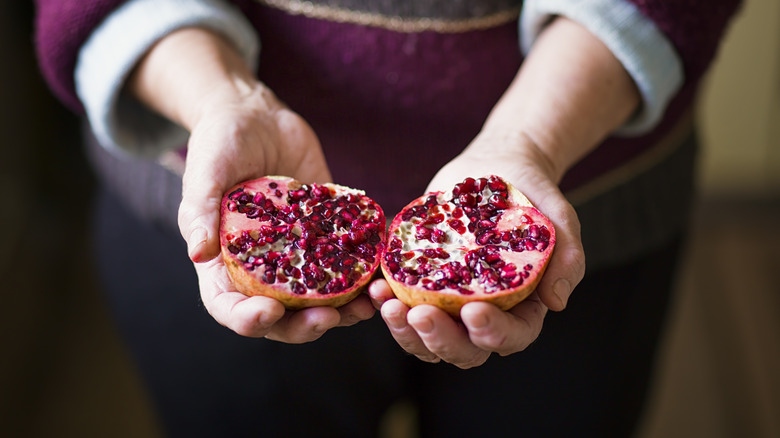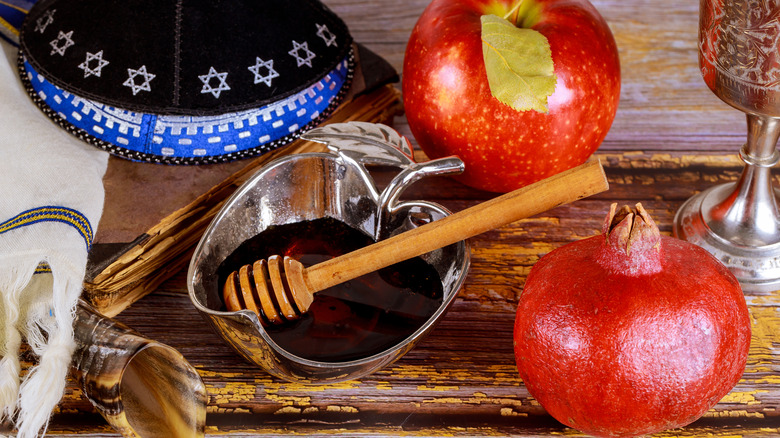Why Pomegranate Seeds Are Traditionally Eaten On Rosh Hashanah
Just as the classic Jewish deli has become a storied component of daily life for big city dwellers, so has the cultural influence of Jewish holidays made its way into the tapestry of American culture. Around 60% of Jewish Americans say they have shared a holiday with a non-Jewish friend. With the upcoming celebration of Rosh Hashanah, the Jewish New Year, it helps to be educated about traditional foods eaten on these high holy days and the symbolism behind them. Brisket is eaten on most Jewish holidays because it is a historically inexpensive cut of meat with the potential for big flavor, for instance, but there are certain foods of ceremonial importance that should be eaten on Rosh Hashanah specifically.
Challah, apples with honey, fish, couscous, and dates will typically show up at a Rosh Hashanah dinner, but so will pomegranates. The ruby-red arils, or seeds, of pomegranates are visually striking and have a tart flavor not entirely unlike cranberries. On top of tasting delicious, pomegranates symbolize abundant blessings and inner worth. Additionally, the Torah lists pomegranates as one of seven fruits that were significant to the ancient Israelis.
The pomegranate's seeds are plentiful, and so is their symbolism
Pomegranates are typically eaten on the second night of Rosh Hashanah, being a "new fruit" that has only just come into season. Jewish folklore says that a pomegranate has exactly 613 seeds, which is in line with the number of commandments, called mitzvot, contained in the Torah. Alternatively, the many seeds of this fruit are bountiful, no matter their exact number, and stand for the number of blessings wished for in the new year. Furthermore, just like the outer rind of the pomegranate must be discarded to get to the succulent fruit inside, so do Jews hope that God will look inside them and see the value of their souls inside their imperfect selves.
Traditionally, the pomegranate arils are served plain or perhaps in a bit of fragranced water. A blessing is said over all the foods at the seder (dinner), hoping for a fruitful and sweet new year full of blessings. If you are enjoying pomegranates in celebration of Rosh Hashanah, your biggest question may be how to open and enjoy the complicated fruit. Luckily, there's a water hack that makes removing seeds a breeze.

